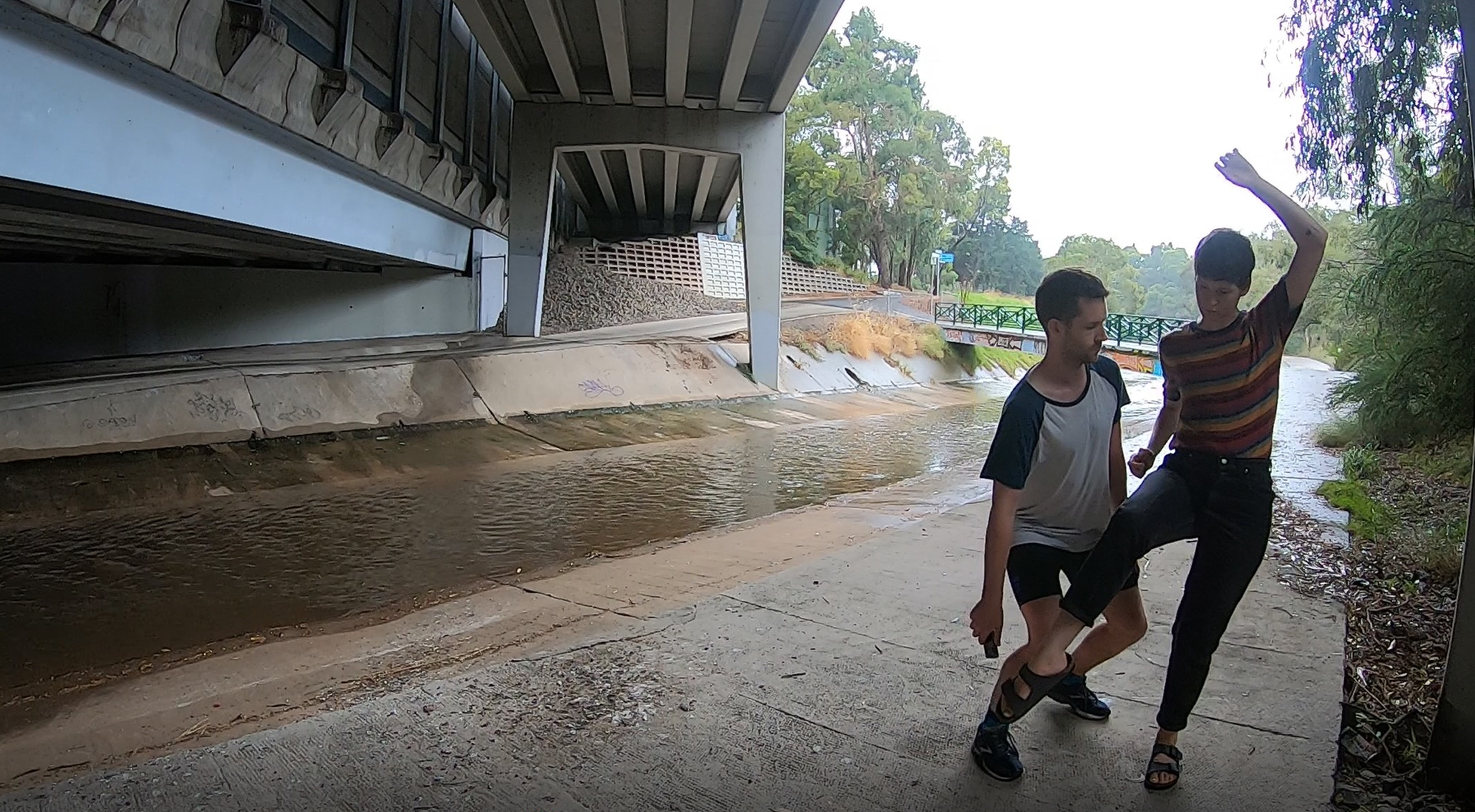Dance/Games Research Practice
My research practice is currently centred around dance as a knowledgeable practice and methodological intervention within digital game design. Despite dance’s increasing prevalence within wider games culture, methods for approaching dance as a social practice remain conspicuously absent from game design research. To read more about the relationship between videogames and dance, read my article here.
In my own game making practice, I foreground the collective embodied knowledge of expert dancers: allowing new games to be constructed from the discursive, imaginative and sensory practices through which dancers navigate, conceptualise and communicate their experiences.
These shared experiences have led me towards a style of game I refer to as bodily adventures (a substitute for the more loaded dance game). With an emphasis on dance as process — rather than performance or choreography — bodily adventures aim to make our relationship to our bodies, the bodies of others, and our sensory experiences in the moment visible and playable, allowing them to be generative of new dance exploration and a continued collective practice of attending to and challenging bodily knowing.
The three significant games that have emerged through this research are Bodily Visions (2020), Small Orbits (2022) and Triangulate (2022).
Prior Work
Above is the video I submitted in partial fulfilment of the Bachelor of Media and Communication (Hons). It documents the design work I did in 2016, exploring the ways in which a designer might prompt a specific kind of destructive intent that helps maintain certain games. If you would like to read more about it, the accompanying exegesis can be found here.



